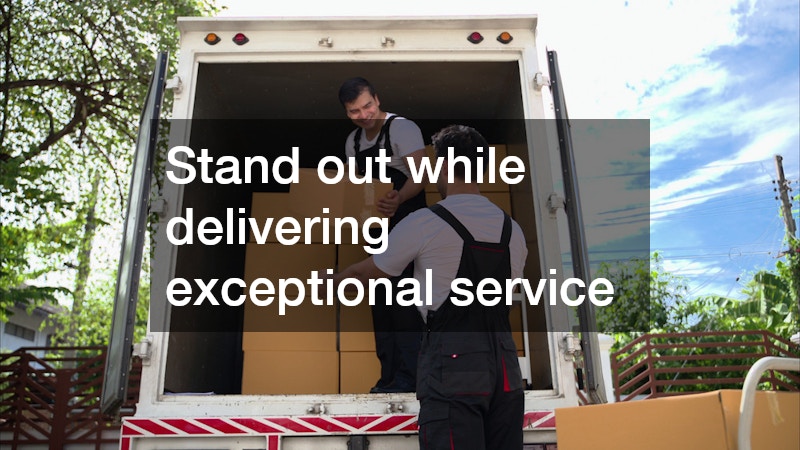Starting a local moving business can be an exciting venture, especially for ambitious young entrepreneurs looking to make their mark in the industry. This article will guide you through the essential steps and considerations to successfully launch your moving company and know what customers look for in local movers.
What are the essential steps to start a local moving business?
A well-crafted business plan is the cornerstone of any successful business venture, and this is especially true for a local moving company. It is crucial to outline your business goals in a clear and structured manner to ensure a focused approach to growth and success.
The business plan should highlight your target market, identifying key customer segments that are most likely to require your moving services. Additionally, develop a budget plan that details the initial costs of equipment, marketing, and other expenses.
Strategically planning for growth involves researching the competitive landscape of your area. Identifying your competitors and analyzing their strengths and weaknesses can provide valuable insights into how you can differentiate your moving business. Moreover, consider including strategies for scaling your business, such as potential service expansions or partnerships with real estate agencies. A comprehensive business plan not only attracts potential investors but also serves as a roadmap for your organization’s success.
Implementing a timeline for your business milestones can help you track progress and make necessary adjustments. Setting achievable short-term goals ensures that your new moving business maintains momentum, while long-term objectives keep the focus on sustainable growth. Regularly review and update your business plan to adapt to changing market conditions and seize emerging opportunities. Remember, a successful moving business demands more than just the physical aspect of moving; it requires strategic planning and continuous evaluation.
How to effectively market your moving business?
Leveraging social media is a powerful way to promote your moving business and connect with a wider audience. Platforms like Facebook, Instagram, and Twitter offer businesses the opportunity to engage directly with potential clients, showcase their services, and build trust with their audience. Creating engaging content, such as behind-the-scenes content, can help personalize your brand and make it more relatable to potential customers. Additionally, utilizing paid advertising on social media can increase the visibility of your services, targeting specific demographics likely to need your services.
Engaging with customers through comments, direct messages, and interactive posts can build a loyal online community around your moving business. As a young entrepreneur, being proactive in responding to inquiries and feedback helps create a reputation for reliability and excellent customer service. Social media platforms also allow you to access valuable insights into consumer behavior and preferences, enabling you to tailor your marketing strategies accordingly.
Collaborating with local influencers or offering promotional discounts through your social media channels can further enhance your visibility and appeal. Partnering with influencers who align with your brand values and have a substantial local following can expand your reach exponentially. Testament to this is the fact that businesses often see increased traffic and sales following successful influencer campaigns. Remember, consistency is key when managing your social media presence; regularly posting relevant content helps keep your audience engaged and your brand top-of-mind.
What are the legal requirements for starting a moving business?
Navigating the legal landscape is crucial when starting a moving business to ensure compliant operations. As a fundamental step, determine the specific licenses required in your area, which may vary depending on local regulations. Obtaining the appropriate licenses is non-negotiable, as failure to comply can result in legal penalties or the shutdown of your business. Additionally, research the insurance policies necessary to protect your business, employees, and clients during moving operations, such as liability and cargo insurance.
Understanding zoning laws and business permits is also essential to operating legally at your chosen location. Local zoning ordinances may dictate where you can store moving trucks or establish an office, impacting your business setup. Additionally, if your operations involve hiring employees, familiarize yourself with labor laws to ensure fair and legal employment practices. This includes establishing clear contracts, complying with wage regulations, and providing a safe working environment for your team.
Regularly keeping up to date with legal changes and regulations can help you avoid compliance issues and adapt to industry standards. Becoming a member of professional moving associations can offer resources and guidelines for maintaining legal operations. Furthermore, consider consulting a legal advisor specializing in business or transport law to ensure a thorough understanding and compliance with all legal aspects of your moving business.
Starting your own moving business is a multifaceted journey that demands attention to detail, from drafting a solid business plan to effectively harnessing the power of social media for marketing. Understanding the competitive landscape gives you the advantage to stand out while delivering exceptional service to your clients. Having clear, achievable goals and regularly reviewing your strategies will ensure that your business continues to grow and adapt to changing market demands.
.


